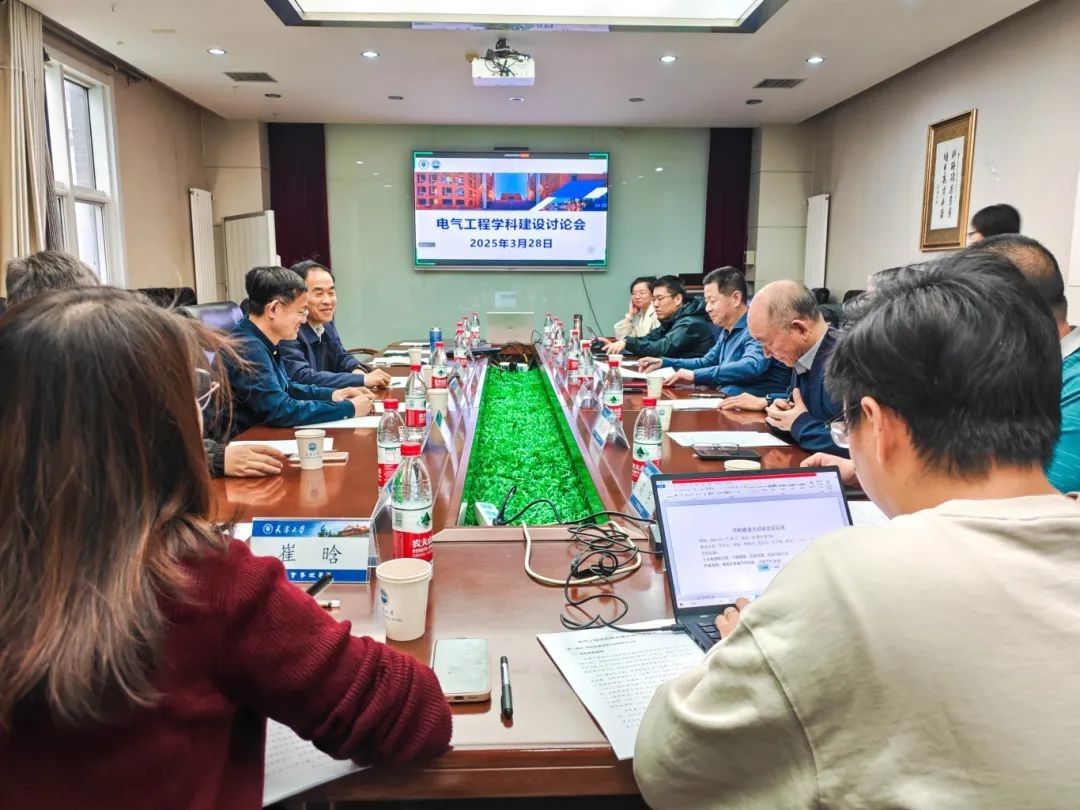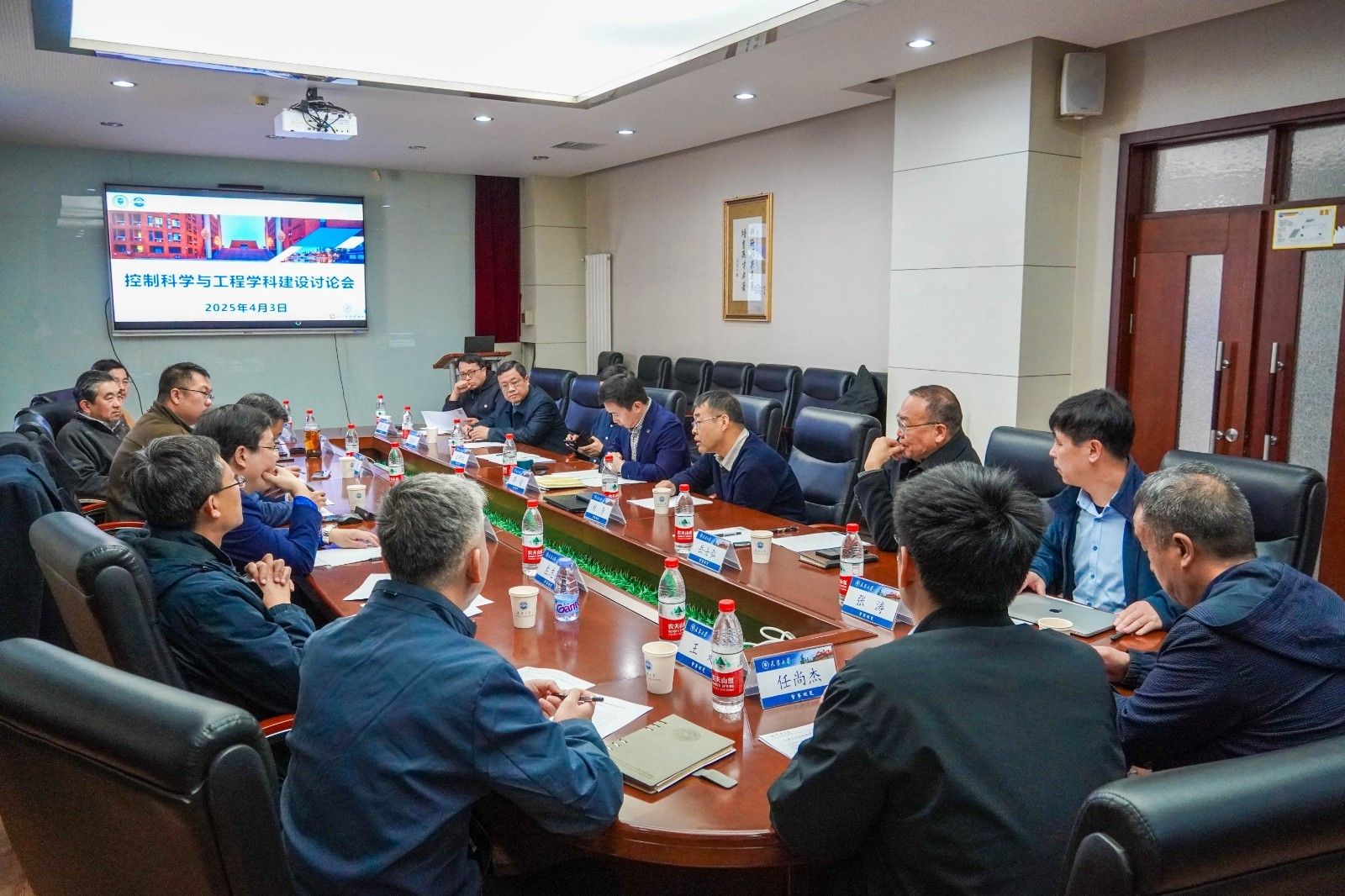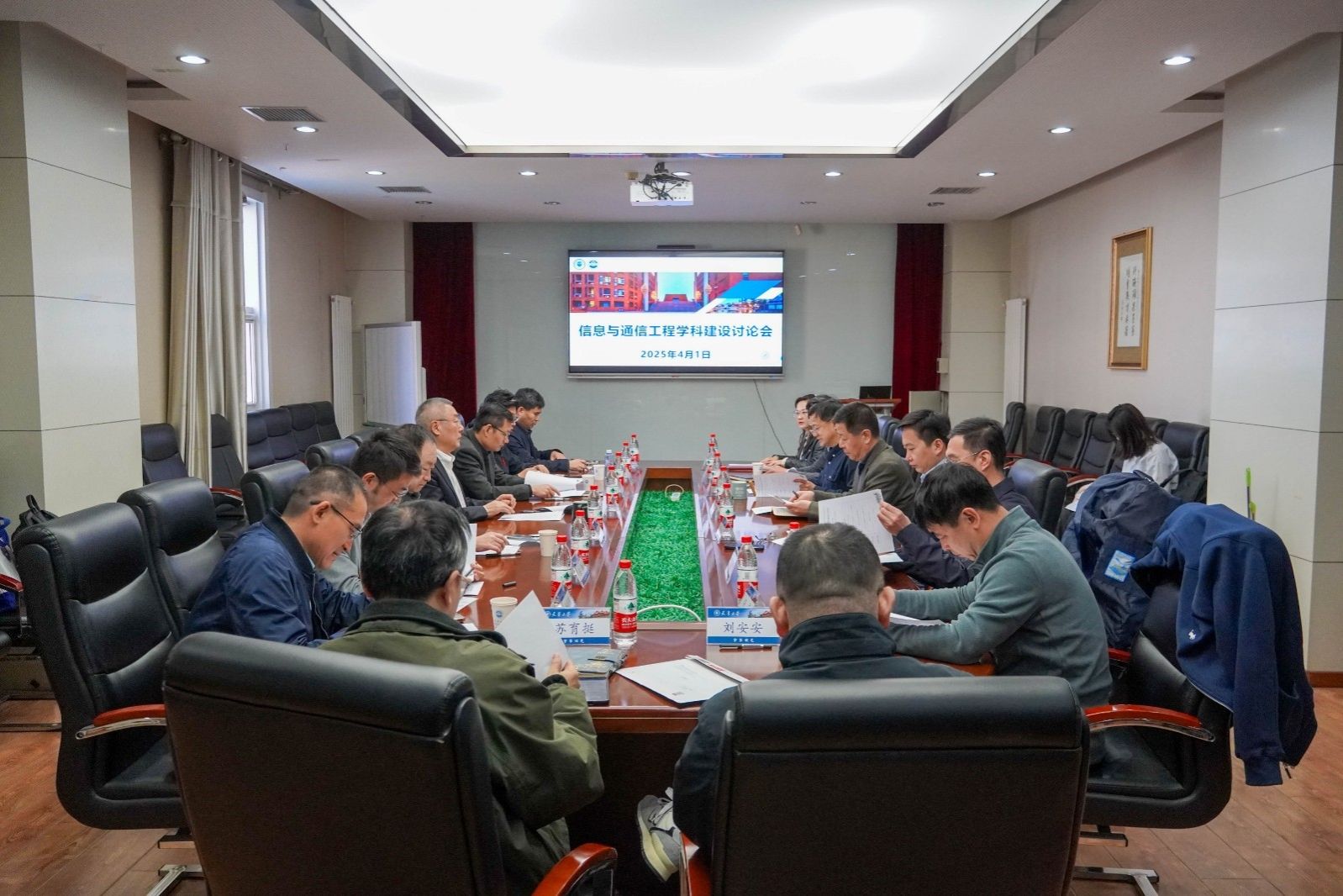Meeting Held to Discuss Disciplinary Construction
In order to deeply promote the high-quality development of the disciplines and implement the action plan of “one strategy for one discipline”, from March 28 to April 3, 2025, the School of Electrical and Information Engineering, Tianjin University respectively organized discussions on the construction of three disciplines: Electrical Engineering, Control Science and Engineering, and Information and Communication Engineering.
Li Bin, Vice President of Tianjin University, Du Qing, Director of the Development and Planning Office, Lei Jianjun, Deputy Dean of the Office of Science and Technology, Li Jiping, Secretary of the Party Committee of the School of Electrical and Information Engineering, Tan Chao, Dean of the School of Electrical and Information Engineering, and other leaders from the university, discipline leaders, as well as dozens of authoritative experts from the academic and industrial circles attended the meetings. The discussion meetings were presided over by Wang Shouxiang, Vice Dean of the School.
Electrical Engineering: Highlighting Characteristics and Advantages, Deepening International Cooperation
The discussion specially invited experts such as Zhu Xiaohui, former deputy chief engineer of the State Grid Tianjin Electric Power Company, Ge Shaoyun, Chairman of Tianjin Tianda Qiushi Electric Power High Technology Co., Ltd, and Jiang Tao, a professor at Northeast Electric Power University. The discussion clarified that the Electrical Engineering discipline should base itself on its disciplinary advantages and aim to serve the national “dual-carbon” strategy and energy transformation. It proposed a development path of strengthening characteristic research directions and expanding international influence. The discipline will focus on promoting school-enterprise collaborative innovation and the construction of high-level scientific research bases, and deepen technological research and development and achievement transformation. In response to the unbalanced development of the discipline, it plans to optimize the layout of level-2 disciplines, integrate resources to cultivate emerging directions, and at the same time rely on international cooperation projects to enhance global academic discourse power, laying a foundation for building a world-class discipline.

Control Science and Engineering: Focusing on Interdisciplinary Integration and Cultivating Core Advantages
The discipline discussion specially invited experts such as Xu Lijun, Dean of the School of Instrumentation and Optoelectronic Engineering, Beihang University, Cheng Long, a researcher at the Institute of Automation of the Chinese Academy of Sciences, and Liu Yungang, Director of the Key Laboratory of Machine Intelligence and System Control, Shandong University. The discussion clarified that the Control Science and Engineering discipline should aim at the cutting-edge development trends and proposed an upgrading strategy centered around interdisciplinary integration and refinement of distinctive feature of the discipline. The discipline will focus on frontier fields such as low-altitude economy and intelligent systems, promote the deep integration of scientific research and industrial applications, and strengthen the breakthrough of key technologies in major projects. In response to the weaknesses in achievement transformation and talent reserve, it plans to optimize the scientific research organization model, strengthen the integration of interdisciplinary resources, cultivate landmark achievements with international influence, and comprehensively enhance the comprehensive strength and competitiveness of the discipline.

Information and Communication Engineering: Oriented towards Strengthening Innovation-driven Development
The discipline discussion specially invited experts including Academician Wang Zhenchang of the Chinese Academy of Engineering, Zhu Meng, Deputy Director of No. 8358 Research Institute of HIWING Technology Academy of CASIC, Liu Weidong, Chief Scientist of Hisense Electric, Ding Guiguang, Secretary of the General Party Branch of the Beijing National Research Center for Information Science and Technology, Tsinghua University, and Wang Qi, Dean of the School of Artificial Intelligence, Optics and Electronics, Northwestern Polytechnical University. The discussion clarified that the Information and Communication Engineering discipline should focus on serving major national needs and proposed a development strategy with the tackling of core technologies and cross-integration as the main line. Relying on the advantages of key teams, the discipline will deepen innovative research in fields such as photoelectric detection and intelligent information processing, and promote the transformation of scientific research achievements into industrial applications. In response to the weaknesses in the construction of discipline platforms and talent teams, it plans to strengthen school-enterprise collaborative innovation, deepen cross-border cooperation in fields such as medical and marine, cultivate a research team with international competitiveness, and concentrate resources to build landmark scientific research platforms to help the discipline achieve leapfrog development.

The three major discussions have defined the development main line of “highlighting characteristic advantages, and deepening opening-up and collaboration” for the discipline construction of the school. In the future, the School of Electrical and Information Engineering will further deepen the reform of systems and mechanisms, optimize the ecology of talent introduction and cultivation. By strengthening organized scientific research and promoting the in-depth integration of industry, education, research and application, it will help the discipline resonate in sync with the national strategy of building China into a leading country in education.
By Lu Ruotong, School of Electrical and Information Engineering
Editor: Sun Xiaofang

